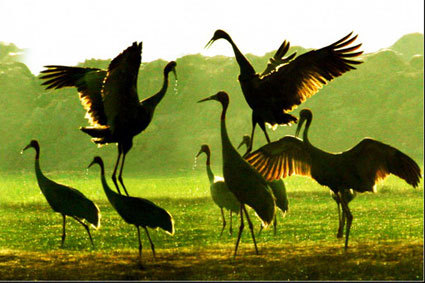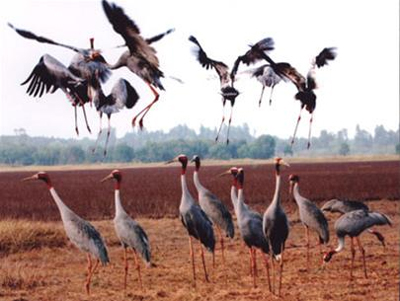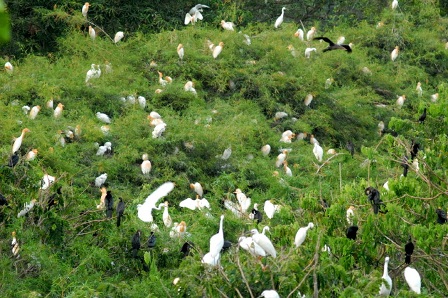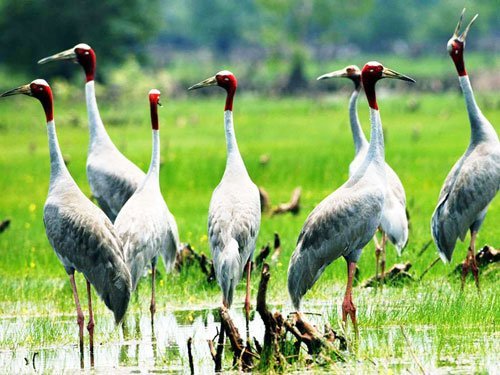If you visit Tram Chim National Park in the Mekong Delta province of Dong Thap during the time of day when the highest tides occur, normally from August to November, you can take a motorboat ride through forests rich with plants and flowers and green cajeput trees.
Tram Chim National Park is an eco-tourist area known as a “green island” with a typical natural landscape of the submerged region of Dong Thap Muoi. The park is home to many botanical species and nearly 200 species of water birds which account for about a quarter of the birds in Vietnam. This includes many rare and precious species of water birds. Among them, the most well-known are the red-headed cranes, one of 15 endangered species of cranes in the world. Nearly 60 percent of the population of red-headed cranes resides in Tram Chim National Park.

The red-headed crane is the tallest among the flying birds in the world. Many of them are nearly 2m tall. They have smooth grey fur, long legs and a long neck. They walk slowly and stretch their wings wide when flying. The cry of the crane is loud and can be heard far away, up to 2-3km. This is because the crane has a long windpipe that creates a sound resonance phenomenon, just like the tube of a trumpet.

Scientists say that red-headed cranes appeared on the earth 60 million years ago, during the time of the gigantic reptile, and lived on all the continents. Tram Chim National Park also has other species of birds, such as the white-winged duck and pelicans.
From late December to early May, flocks of cranes return to Tram Chim to live after migrating to evade the floods. They fly over a vast carpet of green cajeput trees, creating a fantastic scene. Visiting the park during that time people will enjoy the landscape of beautiful skies, rivers and cajeput forests. Hundreds of species of birds, such as storks, teals, grebes, herons and wild ducks perch on branches of trees seeking food.

Tram Chim National Park has the natural identity of the Dong Thap Muoi (Plain of Reeds) region. There are cajeput forests that are 10-18 years old, various species of lotus (white, pink and half white and half pink, water lilies, rice and water morning glory).

In early 1999, Tram Chim was officially recognized as Tram Chim National Park by the Government. This brought a great source of joy and pride to local people in Dong Thap Muoi. Many international organizations for natural preservation have provided funds to protect this park.
Every year, thousands of tourists visit Tram Chim, of which about 30 percent are foreigners. Tourists will find a peaceful atmosphere and have a chance to watch flocks of cranes returning to live in this submerged area.
Comments